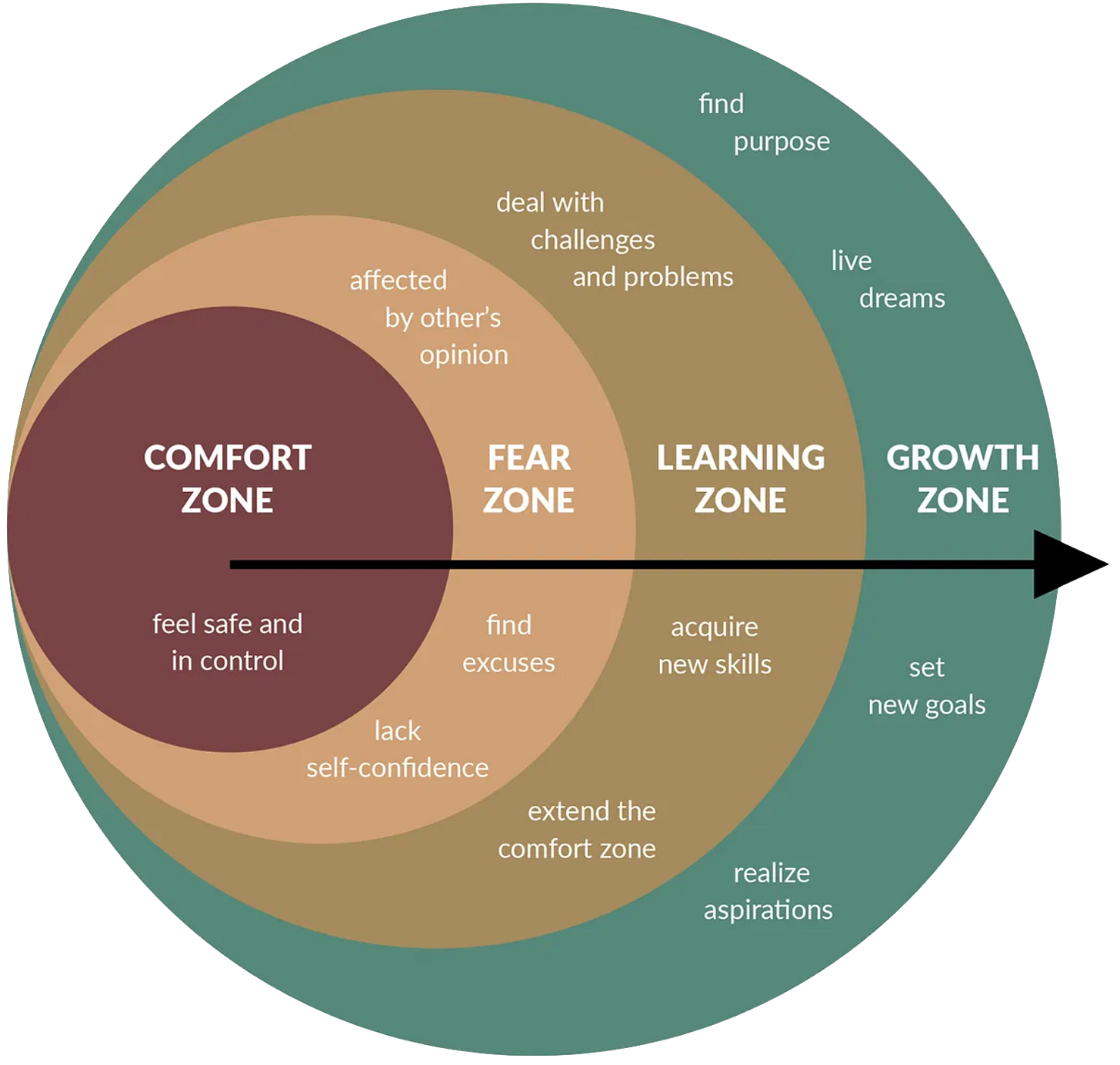Last week, I watched a handful of Ithaca Hummus fans get Ithaca-themed flash tattoos. There were over 400 entries for the giveaway…for a permanent tattoo…of—a very sick design— representing our brand!!! I’m feeling incredibly inspired by those who did this. It makes a gal think how fearless some people are, and when I think of fearlessness, I’m reminded that it’s not necessarily an inherent trait but a product of reaching, maybe even trusting, the Learning Zone.

The first person tattooed was a multi-talented chef who chatted about how she’s trying to open her own restaurant. The next was a nail artist who’s committed to running their business in a more ethical way than how she was taught. After that, a trans man, whose bravery is self-explanatory. The list goes on.
When we often think of going outside our comfort zones, it’s often regarded as a journey of fear, when in actuality, it could be merely one stop—if you choose to keep going. These people have stayed steadfast through new challenges, acquiring new skills to actualize their dreams, and as a result, are actively extending their zones.
When I meet people like this I always wonder, were you born like this? Was I cheated in the genetic lottery? Or did I go left when others went right and now I get overstimulated in the produce section? Beyond the simplistic view of the Zones above, I want to explore an alternative view— that doesn’t treat the Fear and Learning Zones as sequential steps but a personal perspective.
During Rewiring your brain’s fear response, we chatted about the prominent role the amygdala plays in emotion, notably fear. But it’s responsible for so much more—relevantly, learning through a rewards/punishment system and helping develop emotional memory. Oftentimes, our hippocampus gets all the credit for retaining memory, when it’s, once again, merely one stop. Dr. Jandial writes in Life Lessons from a Brain Surgeon, “Although the hippocampus is essential for making new memories, other brain regions distributed across your cortex are necessary for long-term storage…your brain ships memories from your hippocampal loading dock to distant corners across your brain”. The Body Keeps the Score by Bessel van der Kolk has brought its titular lesson into many mainstream circles: our body holds onto memories that can present themselves not just in thought, but in knee-jerk reactions, implicit decision-making, and even illness.
The average person is not acutely aware of the plethora of cause-and-effects that have shaped them. Without this awareness— at the minimum, and years of work towards the maximum— we might face new challenges and freeze, never moving past this Fear Zone. Trauma, as a broad term, can be a root cause of the Fear Zone— susceptible to the opinions of others and a lack of self-confidence, to name a few.
What I’m chewing on is if those who “learned” a cycle of Trying → Failing → Punishment, largely become victim to the Fear Zone— and inversely those who learned Trying → Failing → Reward are able to dedicate more attention to the Learning Zone. And if so, by recognizing our own patterns, can we hack the system?
This goes back to nature vs. nurture right? It’s almost like re-parenting yourself. If your parent looked scared when you scraped your knee, you learned you should be scared. If they kept their composure and assured you it happens sometimes, you learned to not make mountains out of molehills. It’s not rocket science, just revolutionary to our personal development.
Dare #5
In the spirit of not making mountains out of molehills, we’re picking up our journal again (yayyyyy!). This time, make a list of anything you’re nervous about doing— whether actively avoiding, on the horizon, or you’re in the midst of. Then next to each item, make note of how large the problem is. I suggest rating them out of 5 stars, 1 being something that’s more of an inconvenience, and 5 being life threatening. See how quickly your emotions catch up to your rationality.


